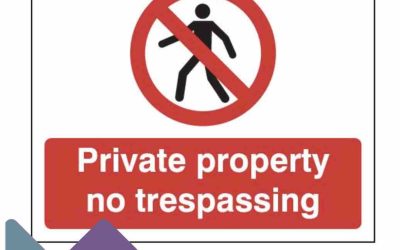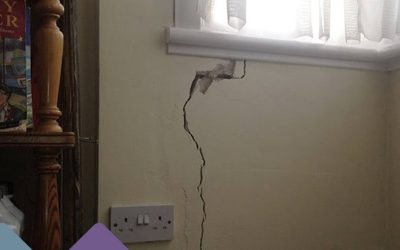In today’s property surveying blogpost topic here at Stokemont we are going to be looking at Boundary Disputes and Determinations.
If a boundary dispute occurs, then the only current formal mechanism for resolution is to involve courts. Unfortunately, these legal proceedings are often complicated, charged with emotions, and can incur exceptionally high legal costs.
In the majority of cases, the outcome received is not satisfactory for anybody. This is shortly going to be changed, the Property Boundaries Bill is an effective way of changing all this.
This Bill first saw the light of day during an introduction of parliament back in 2012. It’s very slowly been making its way up the ranks, getting closer and closer to being properly debated. However, it has been re-drafted on multiple occasions now.
The latest draft was last introduced to Parliament and the ascending ranks after that in January 2020. However, because there have been much more pressing concerns over the last couple of years, there’s been very little progress with it at the time of writing.
Assuming that the Bill does eventually become a legal statute, it would introduce a brand-new resolution for disputes, something similar to the Party Wall Act 1996. It would look a little like this:
Serving Notices
In the event that a boundary dispute arises, but there has been no legal intervention by the court system, and the owner of the land, heretofore after known as the landowner, which is to establish the position of the boundary, or the location of a right of way, then that landowner must serve legal notice on the adjoining landowner.
This notice must have a detailed plan that identifies the boundary, and stipulates what areas the landowner wishes to claim.
If the neighbouring landowner objects to the proposed boundary line, or does not respond within a 14 day period, a dispute is automatically put into place.
It’s important to note that if the landowner does not serve the notice but commences litigation anyway, then they will not be able to recover any of the costs that result during the proceedings.
In the event that court proceedings have already started, the new bill will automatically suspend them and resolve the dispute using the mechanism set out within it.
Appointing Surveyors
When a dispute is officially triggered, the parties have a few choices.
They can either agree upon appointing a joint survey of the two of them, or they can appoint their own surveyors, who will then find a third surveyor for impartial decisions.
Determining the Dispute
Once a single surveyor or three surveyors have been appointed, they will determine the dispute.
This will be done by looking at the precise location of the boundary, and the extent at which any building, construction site, or other structure encroaches upon the land of the other party.
Using this information, they will make an award to either one side or the other.
In a situation where both sides have their own surveyor, the third surveyor can be called upon at any time to resolve any disputes.
Appeals
Either side can appeal the decision made by the surveyors within 28 days of it being officially awarded. The courts will either approve or disagree with the determination of the surveyor as it sees fit. However, if neither party has an objection, then the determination made by the experts will be considered the final say in the matter, and the dispute will be closed.
What this new piece of legislation does is take power from the courts and puts it back in the hands of surveyors. This means that a lot of disputes can be resolved quickly, because there is no need to involve a court.
The procedures have echoes of Party Wall Procedures which you can read more about on our Party Wall FAQ Page.
If you would like to discuss your Boundary Surveying requirements with our team of RICS Chartered Surveyors here at Stokemont, give us a call today and we will be more than happy to assist and advise you.




